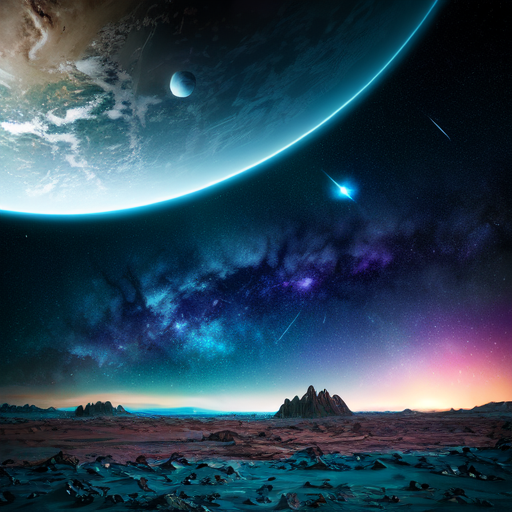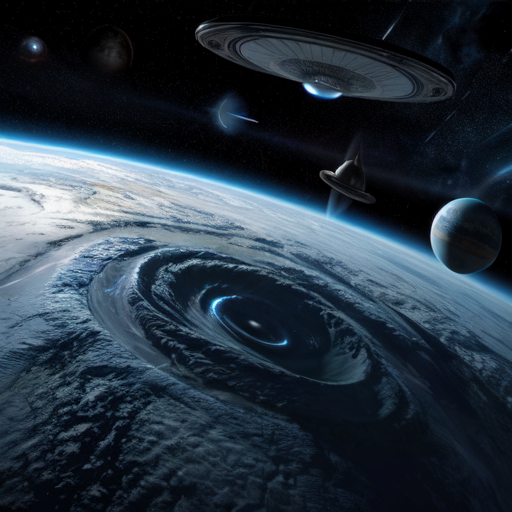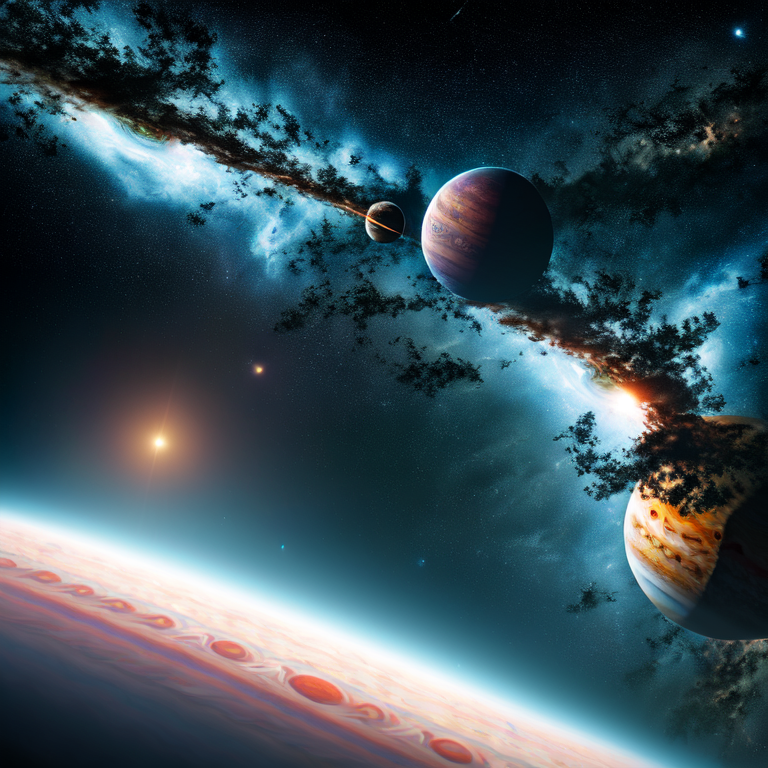Life on lonely planets
Life on lonely planets

Image created by me with AI
We can imagine an interstellar planet similar to Jupiter, even bigger and with one or several giant moons whose surface is frozen, but with hot cores that have melted the ice inside creating global oceans, oceans with more liquid water than we would find in all of us. Earth's oceans.

Image created by me with AI
For this to happen, the moon also has to have a hot core and for that heat to go outside, in the solar system we have the example of the volcanic io, the moon that orbits closest to Jupiter of the four large Galilean satellites, that proximity It makes the tidal forces extremely intense and there are hundreds of active volcanoes on Io, actually there are too many active volcanoes on Iop for there to be liquid water and there is not even ice.

Image created by me with AI
Life likes liquid water, but it also likes stability and having time for the magic of evolution to come into play, what would those beings be like who could live on the moons of wandering worlds without any stars, would they be based in water and in carbon like us, but it would be very different, they wouldn't know what a sunrise is, nor a sunset, surely they wouldn't use their eyes like us because the light would simply blind them, rather they would have to use thermal vision , since with thermal vision they could capture the infrared radiation of objects and other living beings and thus have an image of their environment, of their landscape
Thank you for visiting my blog. If you like posts about #science, #planet, #politics, #rights #crypto, #traveling and discovering secrets and beauties of the #universe, feel free to Follow me as these are the topics I write about the most. Have a wonderful day and stay on this great platform :) :)
! The truth will set us free and science is the one that is closest to the truth!
0
0
0.000
Thanks for your contribution to the STEMsocial community. Feel free to join us on discord to get to know the rest of us!
Please consider delegating to the @stemsocial account (85% of the curation rewards are returned).
You may also include @stemsocial as a beneficiary of the rewards of this post to get a stronger support.
Click on the badge to view your board.
Thank you to our sponsors. Please consider supporting them.
Check out our last posts:
Click on the badge to view your board.
Thank you to our sponsors. Please consider supporting them.
Check out our last posts: